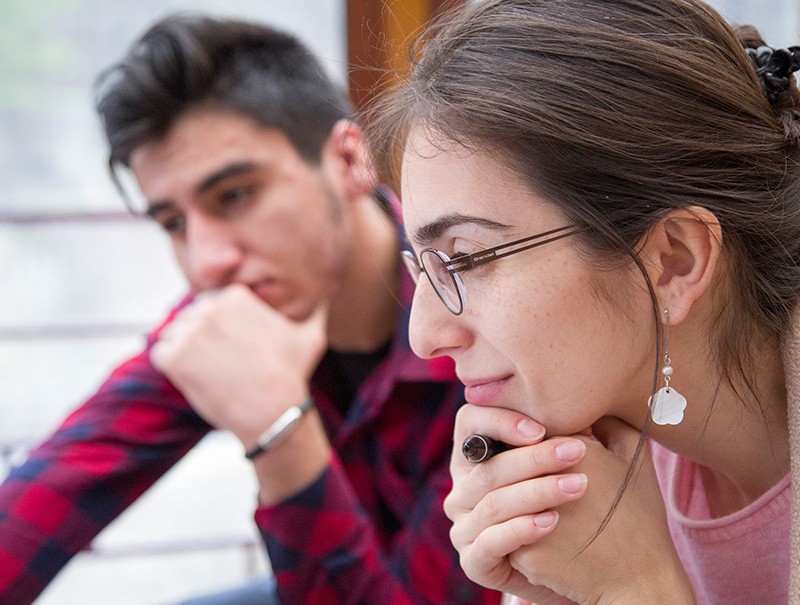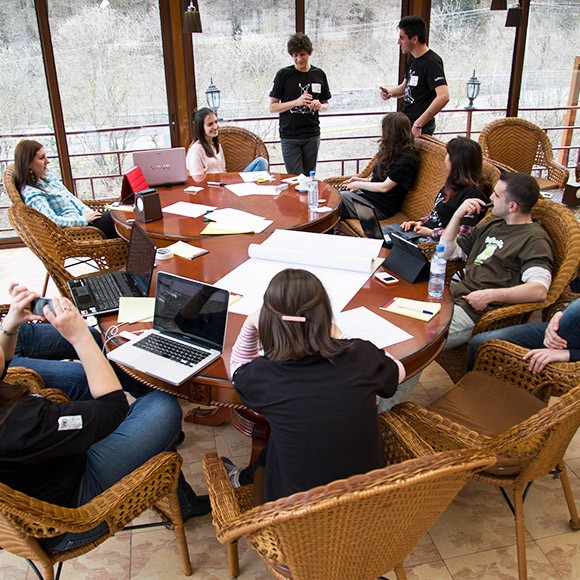Social Innovation Challenge for Climate Change
The effects of climate change in the coming century – harsher temperatures and reduced rainfall – are extremely likely to have far-reaching consequences for economic and social life in Armenia. Temperatures will rise; precipitation, river flow and lake levels will fall; and heat waves, droughts, landslides, mudflows, and floods will become more common. Unless quick action is taken towards large-scale adaptation measures, it is likely that Armenian families, their livelihoods, and their economy will be adversely affected in a profound manner.
Kolba Lab is opening the call for ideas to confront the defining challenge of our generation. If you have an idea or a solution that explicitly makes use of technology then let us know! Deadline for submissions is February 28th, 2015.
The effects of climate change in the coming century – harsher temperatures and reduced rainfall – are extremely likely to have far-reaching consequences for economic and social life in Armenia. Temperatures will rise; precipitation, river flow and lake levels will fall; and heat waves, droughts, landslides, mudflows, and floods will become more common. Unless quick action is taken towards large-scale adaptation measures, it is likely that Armenian families, their livelihoods, and their economy will be adversely affected in a profound manner. Armenia’s poor and especially its rural poor populations are particularly vulnerable to the effects of climate change.
Social impacts will include: increased heat-related illnesses as a result of temperature rises; a shortage of water and an increase to electricity tariffs as competing needs collide; food shortages or increased food prices as agricultural productivity falters; and increased incidences of dangerous and damaging landslides, mudflows and floods as dry soil and deforestation coincide with extreme storms.
There will also be very serious economic impacts: business revenues, jobs, household income, and consumption will all fall as agricultural production declines and electricity tariffs grow; smaller-scale economic losses are also expected due to forest damage.
Armenia still has large reserves of idle agricultural capacity. The potential for economic growth is therefore significant, but in the absence of adaptation measures climate change could very easily impede future economic expansion. Armenia’s future economic development will depend on the decisions that the current generation makes about investments in adaptation. Ultimately, the scale of damage caused by climate change will depend upon what individual citizens do to adapt, what businesses do, and – perhaps most importantly – on what allocative and adaptive policies the Armenian state puts in place.
Innovation focus: early warning systems
Globally there is an increased acceptance that if we cannot fully halt a rise in global temperatures, then we must give more attention to adaptation and early warning, as a way to mitigate the effects
Supporting the development of Early Warning Systems across Armenia will help responses in both short-term/rapid onset climatic hazards (e.g. heat waves, landslide, storms), as well as long-term/slow onset hazards (e.g. drought and other effects of long-term climate change).
An effective early detection and warning system for climate change would benefit both adaptation and preparedness. Some ad hoc forms of climate early warnings are already emerging. But what would a severe climate change early warning system look like? How could the wider public be informed more effectively? How could authorities, business and civil society be better engaged in spreading the warning? How could climate change risks be mitigated by newly available technologies?
Do you have answers? We at Kolba Lab are opening the call for ideas to confront the defining challenge of our generation. If you have an idea or a solution that explicitly makes use of technology then let us know!
What happens next?
Our panel of judges will review the submissions and pick the best from the rest. The successful applicants, along with techies, designers and creatives, will be invited to develop the selected ideas at a Social Innovation Camp in spring 2015. More info coming soon!

